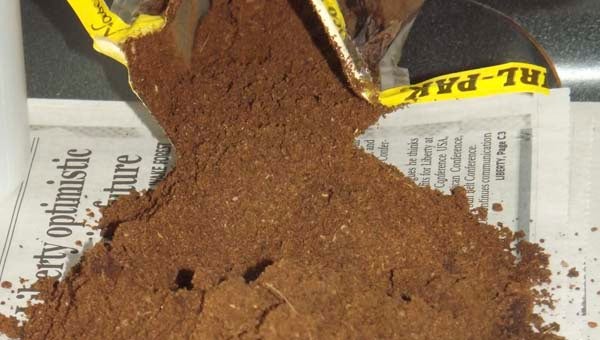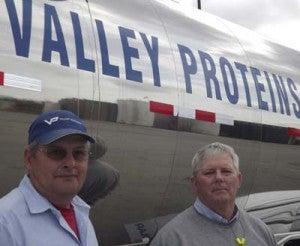Valley Proteins to close facility
Published 11:02 am Wednesday, March 13, 2013

The feed meal, recycled from animal byproducts through a cooking process, is made at Valley Proteins on Route 58 in Southampton County. — Stephen H. Cowles | Tidewater News

Valley Proteins Plant Manager H.J. Vick, left, and General Manager Mike Anderson are two of the 61 employees at the plant on Route 58 in Southampton County. Anderson said the site, which recycles grease and animal byproducts, will close sometime in September. High fuel costs and a decline in raw materials are the chief factors. — STEPHEN H. COWLES/TIDEWATER NEWS
BY STEPHEN H. COWLES/CONTRIBUTING WRITER
Playback58@gmail.com
EMPORIA—Valley Proteins on Route 58 in Southampton County will close its facility in early September, said General Manager Mike Anderson on Monday.
“Forces of business,” he said are responsible, naming specifically the high cost of fuel and the decline in raw materials. Valley Proteins reclaims restaurant grease and animal byproducts for recycling through rendering. The process separates the fat through heating.
All 61 of the employees have been notified, said Anderson, who added that the truck routes would not be stopped for the foreseeable future.
J.J. Smith, spokesman for the company, which is based in Winchester, confirmed the closing.
“The price of fuel is a big factor,” he said, adding that No. 6 oil the plant needs is three to four times more expensive than natural gas.
“We service smaller plants, and consolidation in the meat-packing industry is a factor for the decline in raw materials,” Smith said. He gave Smithfield Packing as an example of a company that does its own rendering.
“There’s also been a movement from red meat into poultry, and most of those plants are in the Shenandoah Valley, DelMarva peninsula on the Eastern Shore and in North Carolina,” he said.
The plant itself was built in 1981 and originally serviced Gwaltney of Smithfield. Valley Proteins acquired the property in 1998, said Smith.
Anderson explained further the work done at the plant. The fat goes on one conveyer and the meat on another. Grease is separated from the meat by way of a pump. Animal byproducts are “cooked” by dehydrating and sanitizing. They go past a magnet that could remove any metal, such as a broken knife tip that somehow got inside. Grinding is next and then it all goes into a cooker at 270 degrees. Afterward it’s pressed. Ultimately the meat is ground into feed meal for chickens and hogs, but not cows.
He praised Valley Proteins as a good company to work for, and said he’s confident the company will do right by its employees.
“I hope most of the guys will stay with the company in some capacity at other locations,” said Anderson, who thinks he’ll more than likely got to Lewiston, N.C.
“We’ve been in touch with their staff to offer any assistance we could,” said Amanda Jarratt, president and chief executive officer of the Franklin-Southampton Economic Development Inc. “We’ll stay in touch with the company representatives throughout the process.”
The priorities will be helping the employees and finding a new purpose, if possible, for the plant, Jarratt said.
“We are pleased that it seems the routings will continue and so truck driver positions will stay,” she added.
“We’re always certainly sorry that local economic conditions force a business to close,” said Southampton County Administrator Mike Johnson. “I think it’s a little early to speculate on what will be the overall economic impact.”





